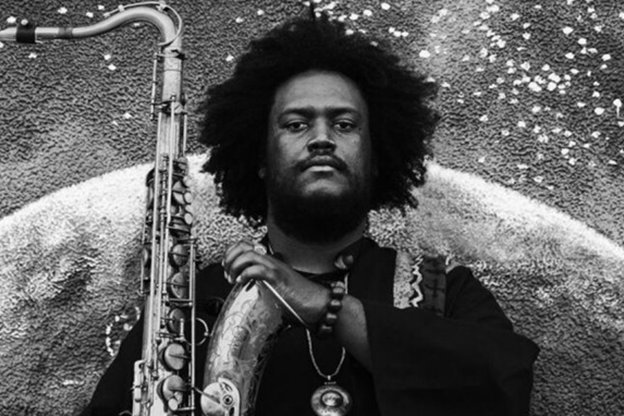
August 24, 2015
 Handout photo/for PhillyVoice
Handout photo/for PhillyVoice
Kamasi Washington plays World Café Live on Thursday, Aug. 27.
If you’re not familiar with the name Kamasi Washington, you’ve probably heard his music before without even knowing it. Once part of Snoop Dogg’s band, Washington was tapped as a jazz protégé at a young age and has worked with everyone from Quincy Jones to Lauryn Hill, recently receiving a ton of recognition for his significant contributions to Kendrick Lamar’s latest opus "To Pimp A Butterfly." This year, Washington stepped out on his own as bandleader, releasing the critically acclaimed album "The Epic" on Flying Lotus’ Brainfeeder imprint, earning praise from musicians and aficionados of all genres. I caught up with Washington ahead of his Philadelphia concert at World Café Live to have a quick chat and talk about what to expect from his live show and what enters his head when he thinks of Philadelphia.
1. If you weren’t making music, what would you be doing?
My mom is a chemistry teacher, so I was really into math and science. I’d probably be doing something with science.
2. Why did you end up really taking to the saxophone?
My dad is a saxophone player, but the sax actually wasn’t my first instrument. I started off at around the age of 3 on drums, then I switched to piano, then I started playing clarinet. When I was about 13, I had been playing jazz a lot and I really wanted to play saxophone; all my favorite musicians were saxophone players. One day after rehearsal, we got back to my house, and my dad left the saxophone out on top of the piano, and I decided right there that I was going to pick up the saxophone and learn how to play it.
3. What was your first favorite song?
My first favorite song would have to be the first song I learned to play on the sax, which is a Wayne Shorter composition called “Sleeping Dancer Sleep On,” from when he was in Art Blakey’s Jazz Messengers.
4. What’s something about Snoop Dogg that people might not know?
He’s an absolute music historian. Snoop knows more music, as far as history and recordings of pop music, than many of the people I’ve worked with.
5. What’s the best thing about working with Kendrick Lamar?
Freedom. He was open to the musicians he collaborated with, allowing us to infuse our own stamp into the album, and that’s why it turned out so rich -- from Thundercat to Flying Lotus, they all contributed their own style.
6. You say you don’t like paying attention to "the rules" or conventions in your music. What’s one rule that you ignore that sets you apart?
In jazz, there’s almost a sanctity to the form of a song. You’ve got 32 bars; you play eight bars A, eight bars B, eight bars C and then eight bars A – you have to keep that form of the song. We change the form of the song all the time. If the bridge feels good, we just keep going with it.
7. Is there any one thing that you want people to take away from your album / live show?
My live show, just like my album, is an expression of freedom. It’s different every single time -- no show is the same. People that go to multiple shows will see that. What the audience brings to the show is what we use to inspire our performance.
8. When you think of Philadelphia, what do you think of?
People like John Coltrane and Stanley Clarke – there’s a lot of great musicians from Philly.
Kamasi Washington plays World Café Live on Thursday, Aug. 27, with support from Philly acts Korey Rikey and Darla. Tickets to the show are available HERE.